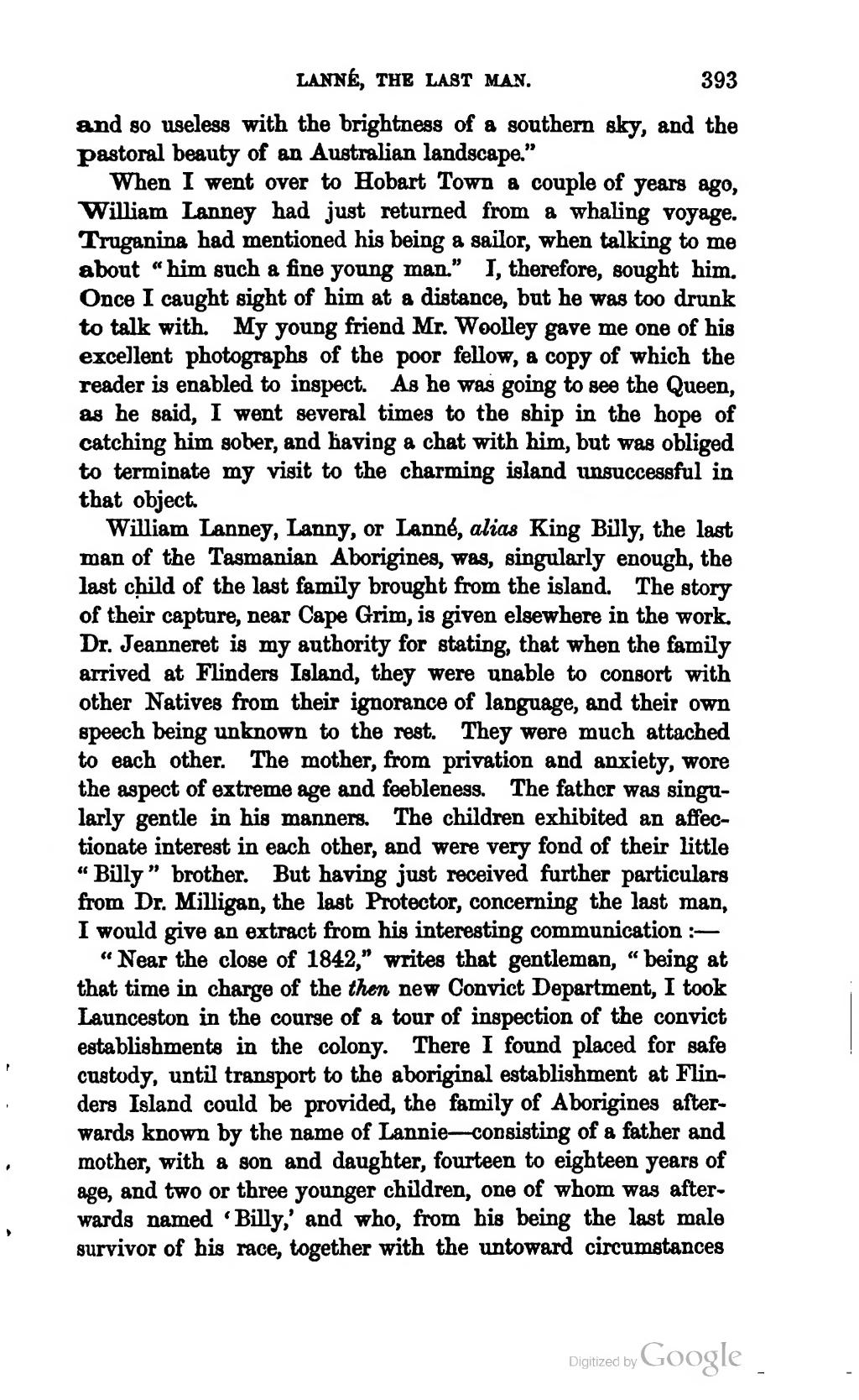and so useless with the brightness of a southern sky, and the pastoral beauty of an Australian landscape."
When I went over to Hobart Town a couple of years ago, William Lanney had just returned from a whaling voyage. Truganina had mentioned his being a sailor, when talking to me about "him such a fine young man." I, therefore, sought him. Once I caught sight of him at a distance, but he was too drunk to talk with. My young friend Mr. Woolley gave me one of his excellent photographs of the poor fellow, a copy of which the reader is enabled to inspect. As he was going to see the Queen, as he said, I went several times to the ship in the hope of catching him sober, and having a chat with him, but was obliged to terminate my visit to the charming island unsuccessful in that object.
William Lanney, Lanny, or Lanné alias King Billy, the last man of the Tasmanian Aborigines, was, singularly enough, the last child of the last family brought from the island. The story of their capture, near Cape Grim, is given elsewhere in the work. Dr. Jeanneret is my authority for stating, that when the family arrived at Flinders Island, they were unable to consort with other Natives from their ignorance of language, and their own speech being unknown to the rest. They were much attached to each other. The mother, from privation and anxiety, wore the aspect of extreme age and feebleness. The father was singularly gentle in his manners. The children exhibited an affectionate interest in each other, and were very fond of their little "Billy" brother. But having just received further particulars from Dr. Milligan, the last Protector, concerning the last man, I would give an extract from his interesting communication:—
"Near the close of 1842," writes that gentleman, "being at that time in charge of the then new Convict Department, I took Launceston in the course of a tour of inspection of the convict establishments in the colony. There I found placed for safe custody, until transport to the aboriginal establishment at Flinders Island could be provided, the family of Aborigines afterwards known by the name of Lannie—consisting of a father and mother, with a son and daughter, fourteen to eighteen years of age, and two or three younger children, one of whom was afterwards named 'Billy,' and who, from his being the last male survivor of his race, together with the untoward circumstances
